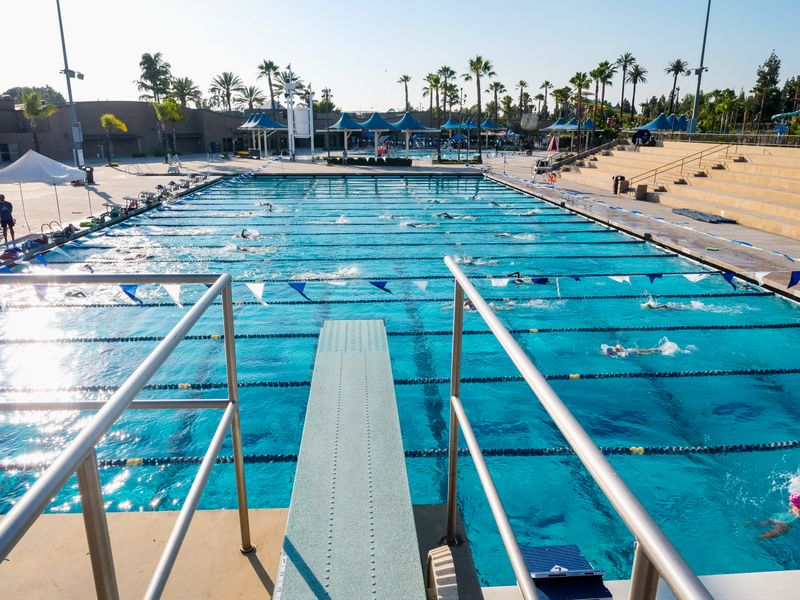Table of Contents
Olympic Committee’s Rights Commitments Tested in India
Introduction
The International Olympic Committee (IOC) is facing a critical test of its human rights commitments as it prepares to hold its 140th annual session in Mumbai, India. The Indian government is expected to announce its bid to host the 2036 Summer Olympic Games in the state of Gujarat, marking the country’s first-ever hosting of the Olympics. However, concerns about poor human rights conditions, including attacks on media freedom and lack of protections for Indian athletes, have raised doubts about India‘s suitability as a host.
Background
Under the leadership of Prime Minister Narendra Modi and his Hindu nationalist Bharatiya Janata Party (BJP), India has seen a series of laws and policies that discriminate against religious minorities, particularly Muslims, and stigmatize opposition voices. These abuses have included intimidation, threats, and politically motivated criminal cases targeting activists, protesters, and journalists. Such a backdrop raises questions about the IOC’s decision to consider India as a host for the Olympic Games.
In May, the Sport & Rights Alliance and the IOC itself condemned the treatment of female athletes during a protest in Delhi against the outgoing president of the Wrestling Federation of India, who is a BJP member of parliament. Security forces violently detained women wrestlers who were demanding justice and safety, as they had filed police complaints of sexual abuse spanning a decade against the president. The authorities initially appeared to protect the president, highlighting the need for an investigation. This incident further underscores the need for human rights reforms and protections for athletes in India.
Sportswashing and Human Rights
The hosting of mega-sporting events has increasingly become an opportunity for governments to “sportswash” their poor rights records, using the prestige of the event to divert attention from human rights abuses. However, the IOC has an opportunity to change this narrative. The IOC has adopted a human rights framework in line with the United Nations Guiding Principles on Business and Human Rights. In Mumbai, the IOC Executive Board plans to propose amendments to the Olympic Charter to further emphasize its commitment to eradicating all forms of discrimination in the Olympic Movement.
With the Modi government’s bid to host the Olympics, the IOC can play a crucial role in pressing for human rights reforms and justice for affected Indian athletes. If governments aspire to host sports’ biggest event, the IOC must ensure that they conduct human rights due diligence and address any rights abuses in their respective countries, including the abuse of athletes and the targeting of journalists.
Editorial and Advice
The IOC should seize this moment to demonstrate its commitment to human rights and ensure that hosting the Olympic Games in India will contribute to positive change. It is imperative that the IOC engages in a constructive dialogue with the Indian government, urging them to address the abuses committed against athletes and journalists.
Additionally, the IOC must demand concrete measures to protect media freedom and ensure the safety and well-being of athletes. This includes establishing transparent and effective reporting mechanisms for human rights violations, as well as providing support for victims and ensuring accountability for perpetrators.
Furthermore, the IOC can use its influence to encourage the Indian government to repeal discriminatory laws and policies and strengthen protections for religious minorities and opposition voices. The Olympic Games should serve as a catalyst for positive societal change, promoting inclusivity, diversity, and respect for human rights.
In conclusion, the IOC’s upcoming session in Mumbai presents an opportunity to assess India‘s readiness to host the Olympic Games in 2036. The IOC must prioritize human rights and use its platform to advocate for necessary reforms in India. By doing so, the IOC can ensure that the Olympic Games promote the values of equality, fairness, and respect for all participants and stakeholders.

<< photo by Kindel Media >>
The image is for illustrative purposes only and does not depict the actual situation.
You might want to read !
- Promoting Stability: Enshrining the Right to Return to Nagorno Karabakh
- EU’s Inaction on Ethiopia’s Human Rights Crisis Fails Victims
- Europe’s Lost Opportunity: EU’s Failure to Uphold Human Rights in Ethiopia
- The Intertwined Existence: Rethinking the Urban-Nature Divide
- Activists Fight Against Destructive Deep Sea Mining off Mexico’s Pacific Coast
- The Rise of Indigenous Rights in Brazil: A Historic Victory for Native Peoples
- Humanitarian Crisis in Haiti Calls for Suspension of Deportation Flights
- Belarus: Dire Consequences of Decree Targeting Exiled Citizens
- Protecting Vulnerable Communities: Cyprus Authorities Must Take Action Against Racist Attacks